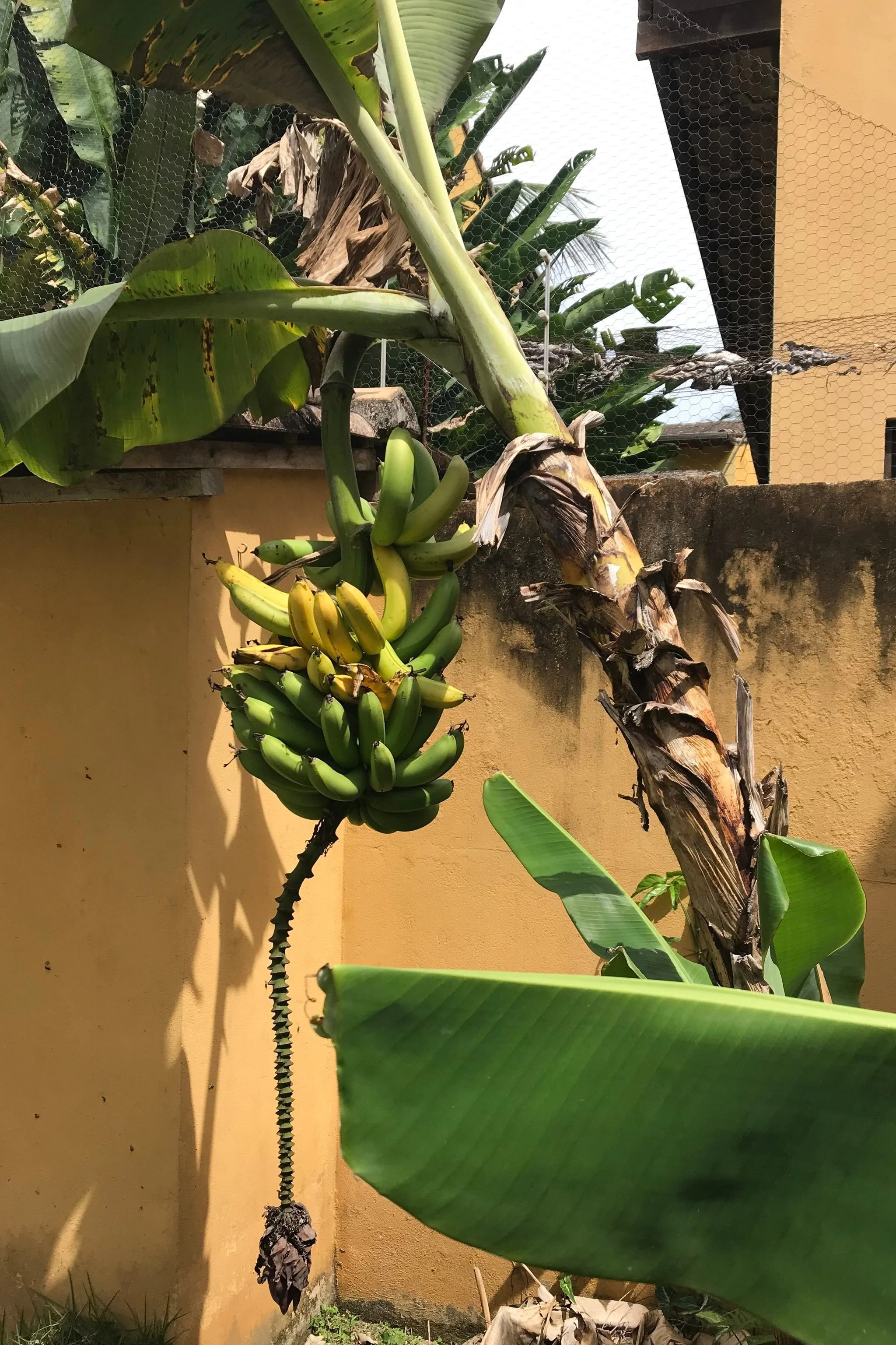The Rhythm of Nature
All the mico family wanted was bananas.
“I never thought I’d say ‘I have a monkey problem.’”
That’s what I told my girlfriend M shortly after arriving in Paraty, a picturesque colonial town in Brazil on the Atlantic Ocean, where I’m writing from now. The first night we’d arrived in July, the roof of Spanish colonial tiles came alive after dark. After being in Rio de Janeiro a month, we both wanted to be closer to nature. Yet we pulled the bedsheets nearly to our chins as the noise crescendoed right above us. M said the scuttling of pebbles sounded like a bird making a nest. I hoped so.
Walking down the street the next morning, though, I spotted several micos, a species of monkey about the size of a squirrel. With faces no bigger than a plum, their pensive, human-like eyes are framed by signature white hair sprouting around their ears. A long striped tails that no doubt helps with balance, a troupe of micos performed like trapeze artists on a power line. We’d seen them in Rio recently after being introduced in Ilha Grande three years earlier, when our host served her neighborhood micos sliced melon on plates.
When I returned, I told M I’d found prime suspects for the prior night’s roof antics. That second night was raucous, too. However, the next morning when I opened the shutters in our living room window, a lone mico greeted me from the branch of an acerola tree less than five feet away. Her eyes met mine deliberately but a drowsiness weighed on them, as though I’d just roused her from slumber. I whisper-called for M to come.
“Must have been that late-night partying,” M said in a soothing rather than accusatory tone.
Our gawking made little difference. I worried aloud, Is she sick? She dropped her head face-first against the branch. I thought she might have died right in front of us. I mentioned the veterinary office down the street to M. Maybe they could help? It’s Sunday, she said. We’d have to wait until the morning.
Would she make it? M placed an apple slice on a lower branch. The mico didn’t go for it. We tried to leave her be. Every 10 or 15 minutes, though, I’d take a look from afar.
“It moved,” I said.
Within the hour, she’d taken hold of a branch a foot higher. The next time I looked, she sat more upright on a higher branch. Finally, I saw only branches and leaves.
The following afternoon, a group of micos ran along the wire as I sat on our porch watching clouds vine around the mountain peaks, a lush green that give the region its name—Costa Verde. One leaped easily from the wall surrounding our yard onto the tree. Then another. By the time M was in the living room, an entire family had arrived. Two of the micos could fit in my hand, a pair of children that wore fluffy gray coats and had markedly shorter tails.
“Maybe she was pregnant? M said.
“Maybe,” I said. “I don’t know if she could’ve just given birth yesterday. Then again, I’m no monkey expert.”
We cooed and chatted with them from our front porch. When we walked inside, one took a couple of swings and hung on the edge of our inner glass window, his body dangling in our living room, perhaps about to drop into our favorite armchair.
“No, no, no,” M said, as if to an infant climbing out from its playpen. She stepped a little closer, and our mico neighbor swung back outside. We didn’t realize the rarity of this close encounter. And the micos were soon acquitted.
While I attended my niece’s wedding in New York, M sent a message and a picture. It included a firetruck. It was our Airbnb host, though, who finally “fished” a skunk from the roof. He’d grown up in Paraty, and knew how to bait a pole. Although he said the skunk sprayed when being removed, M never even caught a whiff.
M doesn’t like when I report to exclusively about encounters with wildlife to friends and family. She says the “exotic” card gets played too often about Brazil. People who live in Paraty call the town of 45,000 their little corner of the world that people from everywhere somehow find. Perhaps it’s because of its renowned sailing waters. Or, it’s the cobblestone streets lined with art galleries and studios, historical museums, film sites of movies and TV shows. For more than two decades now, it has hosted an annual literary festival drawing the likes of Salman Rushdie and Nobel Prize winner Annie Ernaux last year. For me, it strikes an ideal balance between art and sophistication and nature and mystery.
The life beside us is hard to overlook. Four years earlier here, my first visit in Brazil, I woke to a rumble like thunder around our remote cabin on a mountainside. When I walked into a kitchen, a bull stared into my eyes, only a thin glass window between us. Surrounded by a herd, we wondered if we’d be able to walk down the long, winding driveway to the store. Marcos, our Airbnb host, advised us by phone.
“Go with the rhythm of nature,” he said.

